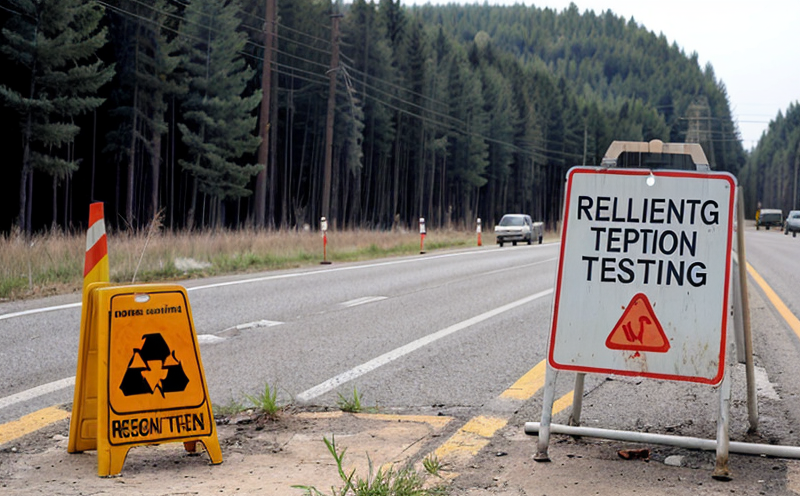ASTM D7295 Radiological Testing of Atmospheric Dust Samples
The ASTM D7295 standard specifies procedures and guidelines for the radiological testing of atmospheric dust samples. This service is crucial in environmental radiation monitoring, ensuring compliance with regulatory requirements and providing valuable data on radioactive contamination levels.
Atmospheric dust can carry various radionuclides from natural sources or industrial emissions. The ASTM D7295 procedure aims to quantify these contaminants accurately through a series of controlled steps. This service is particularly important in sectors like nuclear power, renewable energy, and environmental monitoring where the presence of radioactive materials could pose health risks.
The testing process involves collecting dust samples from designated locations using specialized equipment. These samples are then prepared for analysis according to ASTM D7295 guidelines. Once prepared, the samples undergo radiometric counting and spectroscopy techniques to identify and quantify radionuclides present in the sample.
ASTM D7295 ensures that testing laboratories adhere to stringent quality control measures during sample collection, preparation, and analysis. This standard helps maintain consistency and reliability across different laboratories performing this type of testing. Compliance with ASTM D7295 is essential for organizations seeking to meet regulatory standards set by agencies such as the International Atomic Energy Agency (IAEA) and national environmental protection authorities.
The procedure outlined in ASTM D7295 includes detailed steps for sampling, sample preparation, measurement techniques, data processing, and reporting results. It emphasizes the importance of using certified reference materials to calibrate instruments accurately and validate methods used during testing.
| Step | Description |
|---|---|
| Sampling | Collection of dust samples from specified locations using appropriate samplers. |
| Sample Preparation | Homogenization, drying, and grinding of collected dust samples for analysis. |
| Measurement Techniques | Radiometric counting and spectroscopy to identify and quantify radionuclides. |
| Data Processing | Analysis of measurement data to derive concentrations of detected radionuclides. |
| Reporting Results | Compilation and presentation of test results in a standardized format. |
Scope and Methodology
The ASTM D7295 procedure covers the entire process from sample collection to final reporting. It specifies detailed steps for sampling, sample preparation, measurement techniques, data processing, and result presentation.
| Step | Description |
|---|---|
| Sampling | Collection of dust samples from specified locations using appropriate samplers. |
| Sample Preparation | Homogenization, drying, and grinding of collected dust samples for analysis. |
| Measurement Techniques | Radiometric counting and spectroscopy to identify and quantify radionuclides. |
| Data Processing | Analysis of measurement data to derive concentrations of detected radionuclides. |
| Reporting Results | Compilation and presentation of test results in a standardized format. |
International Acceptance and Recognition
The ASTM D7295 standard is widely accepted globally, particularly in regions with stringent environmental regulations. It has been adopted by numerous countries as a benchmark for radiological testing of atmospheric dust samples.
Many international organizations, including the United Nations Environment Programme (UNEP), have endorsed ASTM D7295 due to its reliability and accuracy in measuring radioactive contamination levels. Compliance with this standard ensures that laboratories meet high standards of quality control and data integrity, which is essential for regulatory compliance and public safety.
ASTM D7295 has been recognized by several national standards bodies such as the American National Standards Institute (ANSI), British Standards Institution (BSI), and European Committee for Standardization (CEN). This widespread acceptance highlights its importance in the field of environmental radiation testing.
Use Cases and Application Examples
- Monitoring nuclear power plant emissions to ensure compliance with international standards.
- Evaluating air quality around renewable energy facilities to assess potential environmental impacts.
- Determining the effectiveness of particulate filters in industrial settings that handle radioactive materials.
- Investigating soil and air contamination resulting from accidents or releases at nuclear sites.
This service plays a critical role in identifying potential sources of radioactive contamination, which can help prevent health risks to nearby populations. By providing accurate data on radionuclide levels present in atmospheric dust samples, ASTM D7295 supports informed decision-making processes within regulatory bodies and industrial operations.





